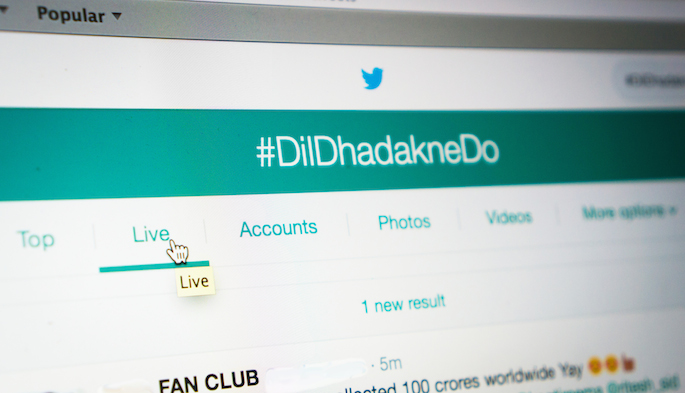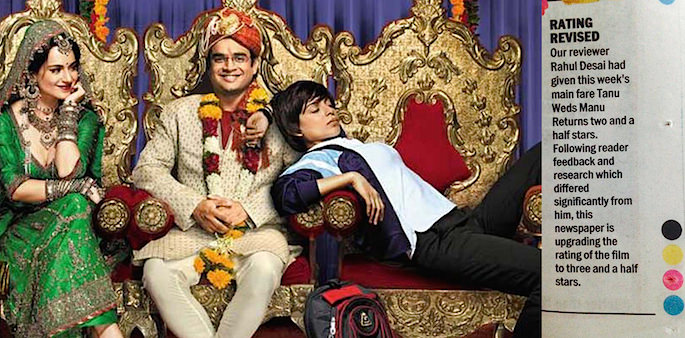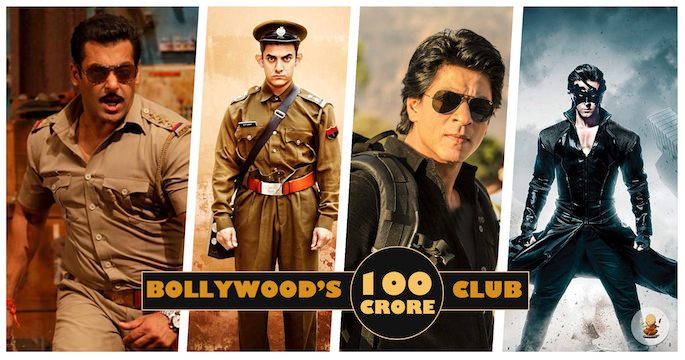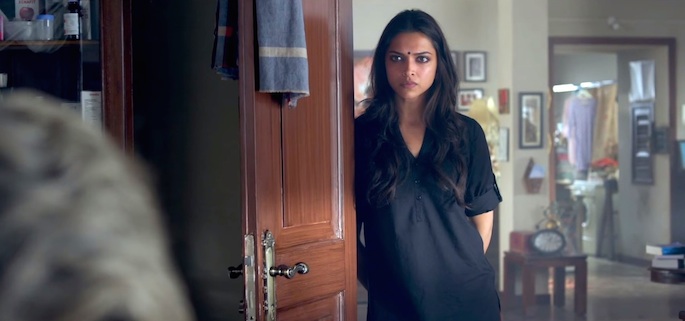
Rajeev Masand unintentionally gave us four important lessons in professionalism in just one meeting.
Discipline – he arrived sharp on time, looking dapper and fresh. Politeness – given that he could be meeting anyone from Ranbir Kapoor to Robert De Niro the next day, he did not check his smart phone (or his new Apple watch), in the 4 hours that he gave us. Not even once. Attentiveness – he listens carefully to every word you speak. Mastery – you could talk French or Danish cinema, Pixar or the Oscars –the man knows his field like nobody’s business. And all this, while he is heavily jetlagged.
During this “watch and learn” exercise for us, he spoke about his journey, his typical work week (which could span 3 continents), the trends in the industry, and even his all-time favorite films!
Beginnings
“Your foray into entertainment journalism started at the age of 16. Tell us about that.”
I just got lucky. At that time, there were magazines like Filmfare and Stardust, but there wasn’t film journalism in the mainstream media as you have it today. Of course Khalid Mohamed existed and I was a big fan of his work. I was still studying (commerce), not interested in being in college and just doing it for my parents. I joined the Times of India group and my first job was for the Metropolis on Saturday –a weekend paper. I didn’t sign up to be a film journalist. They just happened to be looking for someone who could cover entertainment and I said, let me take a shot at it. I had a colleague – Suresh Nair, who’s now a scriptwriter and I remember us together starting the weekly film page in the Bombay Times. The first interview on the page was Urmila Matondkar’s for Daud. It’s one of those things that just stays in your memory. She had a silver dress on, in the cutout image that we used. I remember the entire making of that article.
On The Tweet-Review Culture

“In India, it has become a problem with journalism as a whole. Speed has replaced accuracy. Speed has replaced the need for sensible, well thought-of analysis.”
We live in times where things are so competitive. If non-traditional reviewers are competing with the traditional ones, how else do they get heard unless they do it first? In India, it has become a problem with journalism as a whole. Speed has replaced accuracy. Speed has replaced the need for sensible, well thought-of analysis. I have a really big problem with tweet reviews. First of all, it’s not a review. You’re responding to scenes and you’re synopsizing the film as you go, giving out spoilers. Why would anyone want to read that? Being the entertainment editor, I’ve told my own team that I don’t think this is a good idea. But I admit that I don’t understand the online space very well. They tell me that these reviews get an insane number of hits! As for me, I need to at least sleep over a film before I give it a verdict. I can’t do the insta-review thing.
On The Urban Myth of “Paid Reviews”
“I really, honestly want to know what the going rate is. In 20 years, I’ve never heard of any such thing happening.”
The landscape has changed so much in the last few years because of so many online voices. Everyone’s a critic, which I think is very healthy. While there will be a lot of unintelligent voices, this freedom and democracy also gives us a lot of interesting, unconventional voices, who have changed the rules. There are, in fact, no rules. Look at The Vigil Idiot. The side effect of it all, is the twitter bashing. There’s no place for a differing point of view. If you differ, then you’re being paid. I really, honestly want to know what the going rate is. In 20 years, I’ve never heard of any such thing happening.
On Rating a Film
“How much do your expectations come into play? Do you go softer on new, indie filmmakers?”
We’re humans. I’d be lying if I say that my expectations don’t come into play. Dil Dhadakne Do is an example. I went in with sky high expectations because I love Zoya’s first film – Luck by Chance. Ultimately your review is your emotional response to a film. In the end, when I’m putting that final, dreaded star rating, that’s just based on how I felt as a whole. And that’s independent of who made it. But, if it’s a new voice, then within my review, I will appreciate what is good and exciting about the film, even if it’s not entirely coming together. Would I give them a free pass? No!
On Mumbai Mirror and the Rating System

That was terrible. I read all the opinions, and I completely agree that in a perfect world, you shouldn’t have star ratings because it is reductive. How do you put a number on art? But I also think that it is unrealistic. Let’s just face the fact that in the times that we live in, people are not reading. Yes, in a perfect world, they would. But we don’t live in a perfect world. I have no illusions about the fact that I’m not critiquing art – I am reviewing movies and the purpose that serves in our country is to tell people whether to watch it or not. It’s not ideal and I wish someone gave me a space for a 1000 word review. But when I do a 4 minute video review, I’m told that it’s too long! Nobody has 4 minutes. So in this scenario, you have to have the ratings. What the Mirror did is wrong. They don’t get what a review is –it is one person’s opinion.
On Celebrity Interviewing
In an ideal world, as the great Roger Ebert had often said –the critic should be invisible. No one should even know what you look like. That’s probably the best way and the only way that you can do your job without any bias or any sense of attachment. If you never meet the stars, you just react to what they are on screen. And that happens in the west. Unfortunately, in India, you can’t be a full-time critic, because then you would only have a job on Thursdays and Fridays. In America, it’s not that difficult, because you don’t just review American films. The New York Times alone has 7 or 8 reviewers in order to cover all the films that release in one week. But In India, we have to do other things, and so I do the interviews.

The industry is totally star driven and while I enjoy doing these shows, what I don’t enjoy is doing promotional interviews. It has now become like the junkets in Hollywood. You only see them when their movies are coming out, and as a result you only talk about that movie. So now I’ve decided, that if it’s going to be promotional, I’m just going to make it fun. I’m going to play a game or do something silly. I can’t in all seriousness start talking to them about ABCD 2 and pretend that we’re discussing something very intelligent. I recently did an interview with Vidya, which was not for Hamari Adhuri Kahani, and I could ask her so much more. We spoke about failure and how she deals with the ups and downs in her career. So I look for interviews where we can have a real conversation. I love what we do at the end of every year called the RoundTable. For example, we bring together all the best actresses of that year. It’s a monster to co-ordinate, but that’s what I love, because those are non-agenda conversations.
On The 100-Crore-Club Culture

“If your eye is on the money alone, then every decision you’re making on a film is to service that agenda. And not to make a good film.”
If a film like Bang Bang or Jai Ho, which cost 100-150 crores to make, earns 160 crores, it is not a hit. It’s not a blockbuster by any measure. That’s another problem with the media. We use these terms so loosely. That’s where the trade pundits should use their expertise and say, “Hey guys, don’t get carried away”. But the trade pundits have become part of the publicity machinery. They’re fueling the frenzy. This whole 100-crore-club thing is so unhealthy. Why should it matter at all? The industry is going on peddling these numbers, the media is picking that up and force-feeding the audience, and now the audience is also invested. My mom calls me up and tells me “Oh, this movie made 100 crores!”. And I say, “Why do you care?” It has penetrated the national news. I understand if the trade journals cover it. But it’s a malaise that exists everywhere now.
In India, the numbers are not accurate at all. It’s so difficult to have a fool-proof mechanism. You get the studio number and the trade pundit number and they’re off by a drastic amount. In Hollywood, you look at boxofficemojo, and their collection estimates only differ by the last few digits from the studio’s. It’s also unhealthy because this is becoming the aspiration of the filmmaker. If your eye is on the money alone, then every decision you’re making on a film is to service that agenda. And not to make a good film.
On The new-wave in Indian Cinema

It is so exciting. 10 years ago we couldn’t have a film like Piku. To be honest, Piku couldn’t have had this kind of success even today, if its great content hadn’t been matched with its star cast. Which is also evidence of the fact that not that much has changed. You can make Piku but it’ll only work if you put Deepika Padukone in it. Or it wouldn’t have this kind of release. So it’s the marriage of the big stars with the new-age content. Otherwise, it would still have an audience, but it wouldn’t penetrate down to the masses, in the manner that it has.
On What makes a film great
Great characters. I genuinely believe that characters come even above story. Again, Piku is a great example. It’s not much of a story, if you think about it. But it’s the characters that you fall in love with. If you give me characters that I am really riveted by and I care enough to know what’s going to happen to them, I’m invested in your film. And then it can even be a long film, and I won’t complain. A good character can salvage an average story.
On that note, we had to ask Rajeev about his all-time favorite films. Click here to see his picks!
Rajeev Masand is a film critic and entertainment editor for CNN-IBN. He is the host of ‘Now Showing’ and ‘Rajeev Masand Ki Pasand’ (currently on IBN7) and previously hosted ‘Masand Ki Pasand’ on Star News. He is Contributing Editor for GQ India, and writes a monthly column, ‘Talk Movies’ for the magazine.















